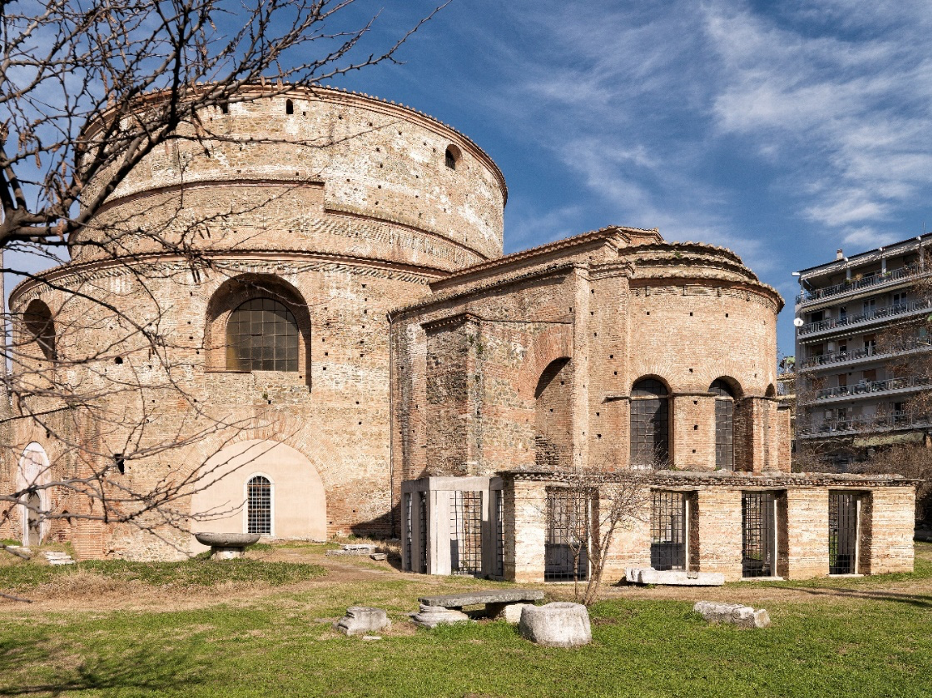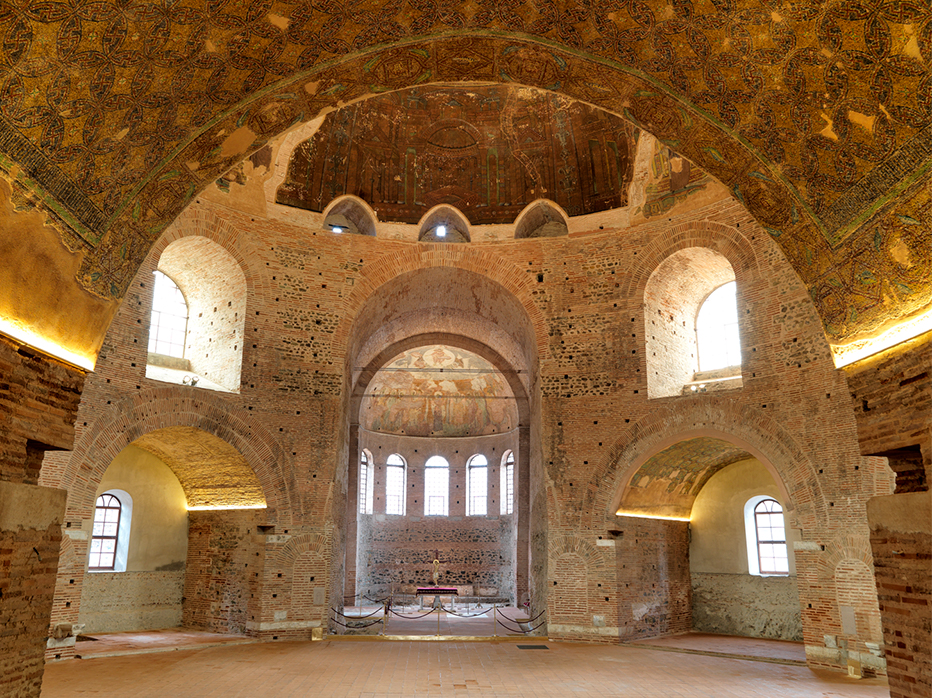The European Empress Theophano Prize as a link for today’s Europe

Right before the Award Ceremony of the first Empress Theophano Prize, the Chairman of the Advisory Council of the Theophano Foundation, Honorary President of the European Council and former Prime Minister of Belgium, Mr Herman Count Van Rompuy, raises the rationale and defines the aim of this new award in the following statement:
“This is a new European prize, but is also innovative. First and foremost, because it wants to place strong emphasis on links between different cultures and regions of the Union, especially between East and West. What is also innovative is that the prize is named after a woman. Theophano is a Byzantine princess which became Empress of the Holy Roman Empire a thousand years ago. She embodies this bridge between East and West. The Advisory Board of the Theophano Foundation, which I have the honor of chairing, came to the unanimous decision that the student exchange Erasmus Programme fully met with the purpose of the prize. Thanks to this programme millions of young Europeans had and have the opportunity to study and live abroad, and many of them just before entering professional life. This living together makes us forget the differences of all kinds. You are all part of a great European home, sharing not dividing. The European Commission sees this as one of its greatest contributions to the creation of European citizenship. The Theophano prize aims to reward and encourage this. Even more young people should be given this unique opportunity. On October the 7th, the Theophano Foundation will reward this prize to the President of the Commission, Ms. von der Leyen, in the presence of the Prime Minister of Greece, Mr. Kyriakos Mitsotakis at the ancient Rotunda in Thessaloniki, not far from where Aristotle and Alexander the Great lived. Old and new, young and old are thus linked in more than a symbol, a reality.”
General Information
With Thessaloniki at its heart, a new award of pan-European status and scope has been instituted, the Empress Theophano Prize.
With the symbolic selection of the name of Byzantine Empress Theophano —whose contribution was critical in the cultural rebirth of the Western European region— and with the Rotunda for the Award Ceremony —a landmark monument signifying the Roman, Byzantine, Orthodox, Ottoman, and Greek influence on the shaping of Europe— the award aims to:
– Reward individuals or organisations for their contribution to the understanding and strengthening of the modern European Idea;
– Promote, at this crucial juncture, the recognition of the common heritage shared by different geographic areas of Europe and the historic interdependence of its peoples, as well as their importance to current European cooperation and the relations of Europe with its neighbouring cultures;
– Underline and highlight the contributions of the parties receiving the prize, broadening our understanding of the European Union, European cooperation, and our common roots in history.
The idea of the prize emerged from prominent European personalities who, looking back at the historical and geographical roots of Europe, focus their attentions to promoting the contemporary European identity and our shared historic European principles and values. The Empress Theophano Prize is set to be presented annually by the Theophano Foundation in the form of a distinction not linked to a monetary award, following the evaluation of candidates by the two main bodies of the Foundation: the Advisory and the Governing Councils, chaired by the Honorary President of the European Council and former Prime Minister of Belgium, Mr Herman Count Van Rompuy, and the Chairman of the Cultural Society of Entrepreneurs of Northern Greece, Mr Stavros Andreadis, respectively.
In an era when there is an ever-increasing need for mutual understanding between the different peoples that compose present-day Europe, the ‘Empress Theophano’ Prize promotes European cooperation, the importance of education and culture, and equality between races and peoples. The Advisory and Governing Councils of the Theophano Foundation chose to dignify these fundamental values through the awarding of the inaugural prize to an institution that expresses the ideal of European cooperation and mobility in practice, while effectively strengthening mutual understanding through the young people at the core of the very future of Europe: the student exchange programme of the European Union, ERASMUS.
Bearing the name of Dutch philosopher Erasmus, an opponent of dogmatism, who lived and worked in several places in Europe in an attempt to broaden his knowledge and understanding, the ERASMUS institution is directly connected to mobility and to the experience of young people in different European countries. Thirty-three years after its foundation and having served more than 9 million participants, the ERASMUS programme contributes to shaping the European citizens of tomorrow; those who, by experiencing the programme, are able to comprehend how the individual historic and cultural differentiations of Europe are part of a wider geographical and cultural unit expressed by means of our common European identity, of the idea of unified Europe, and of the cooperation of its peoples.
In recognition of the importance of the ‘Empress Theophano’ Prize, as well as the significance of the winner, the ERASMUS institution, to the future of European cooperation, the award will be presented to the President of the European Commission, Ms Ursula von der Leyen at a distinguished Award Ceremony to be held on Wednesday 7 October 2020, at the monument of the Rotunda and in the presence of Greece’s Prime Minister, Mr Kyriakos Mitsotakis. Their presence at the first Award Ceremony further underlines the value of the Prize, as well as the key role of Thessaloniki and Greece in European Culture and the modern European Idea.
The Ceremony will be held under the patronage of H.E. the President of the Hellenic Republic, Ms Katerina Sakellaropoulou.
Empress Theophano
Empress Theophano, who inspired this prize, is a historic figure of Europe who played a significant role in its development during the 10th century.
The niece of Emperor John I Tzimiskes, she married Otto II and was crowned Holy Roman Empress as his wife. Following his death, she maintained the title of Empress. Her historic presence in Western Europe, dedicated to improving relations between East and West, offered a positive contribution to the cultural renaissance of western European territories, introducing to the west the central role women had in Byzantine society and transferring significant influence from the flourishing Byzantine empire in the fields of education, the arts, commerce, and health, while working to advance civil governance, promoting it over the military.
Empress Theophano is buried at the Cathedral of St Pantaleon in Cologne, Germany.
The Governing Council
Chairman
Stavros Andreadis
Chairman, SANI/IKOS Group
Chairman, Cultural Society of Entrepreneurs of Northern Greece (GR)
Members
Nikolaos Efthymiadis
Chairman, EFTHYMIADIS Agrotechnology Group
Honorary Chairman, Federation of Greek Industries (GR)
Evangelos Gerovassiliou
Chairman, Gerovassiliou Wines (GR)
Constantinos Gleoudis
Chairman, KAVEX
Member of the Board, Hellenic Society for the Environment and Cultural Heritage (GR)
Theodoros Ikonomou
Chairman, Greek Forest Property Association
Head of a forest management and wood production firm (GR)
Nada Korac Kakabadse
Professor of Policy, Governance and Ethics, Henley Business School, University of Reading (UK)
George Mylonas
Chairman, ALUMIL Group (GR)
Sonja Puntscher-Riekmann
Professor Emeritus of Political Theory and European Politics, University of Salzburg (AT)
Stefan Schepers
Secretary General, High Level Groups on Policy Innovation (BE)
Member of the Theophano Foundation
Vassos Konstantinidis
Chairman, INART (GR)
The Advisory Council
Chairman
Herman Van Rompuy
President Emeritus of the European Council
Former Minister of State of Belgium (BE)
Members
Mary McAleese
Former President of Ireland | Professor of Children, Religion and Law, University Glasgow (IRL)
Nikiforos Diamandouros
Former European Ombudsman (GR)
Élisabeth Guigou
President, Anna Lindh Foundation | Former Secretary of State (F)
Agnieszka Holland
Author and film director (PL)
Maria Luisa Poncela
Former Secretary of State (ES)
Georges Prevelakis
Professor Emeritus, Paris-Sorbonne University (FR)
Sir Ivan Rogers
Former UK Ambassador to the EU (UK)
Chiara Saraceno
Honorary fellow Collegio Alberto, University of Turin (IT)
Vassilios Skouris
Former President, European Court of Justice of the EU (GR)
Karl Prince zu Schwarzenberg
Former Minister of Foreign Affairs (CZ)
Rita Süssmuth
Former President of the German Parliament (DE)
Panos Tzonos
Professor Emeritus, Aristotle University of Thessaloniki (GR)
Luuk Van Middelaar
Professor of EU Foundations and Institutions, University of Leiden (NL)
The Rotunda Monument
The emblematic monument of Thessaloniki, was constructed in the early 4th century AD, on the turning point between the pagan with the Christian world, probably as a temple for ancient cult worship or as a mausoleum for Constantine the Great (306-337). This circular, domed building measures 29.80 meters in height, 24.50 meters in diameter, its walls are 6.30 meters thick and can only be compared architecturally to the Pantheon in Rome. Not long after it was built and during the early years of the long-lived Byzantine Empire (330-1453), the Rotunda was turned into a Christian church with the addition of a sanctuary on its eastern side. The interior was decorated with Early Byzantine (4th- 6th c. AD) wall mosaics of unique artistry and beauty. It was Thessaloniki’s cathedral church (metropolis) between 1524 and 1591, the year in which it was converted to a mosque by the Ottoman conquerors. It remained in use as a mosque until the city’s liberation in 1912. Its dedication since that time to Saint George (Agios Georgios) is owing to the small neighboring church of this name. The mosaic decoration of the Rotunda is a masterpiece of Late Antique art.
Text source: http://galeriuspalace.culture.gr/en/monuments/rotonta/


Photo credits: Ephorate of Antiquities of Thessaloniki City.
